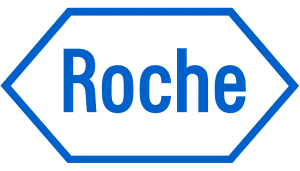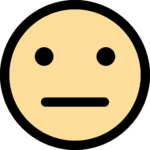
Click on ‘Explanation about the score’ sign next to each entry to expand and learn more.
The company should publicly commit to human rights in relation to product development and marketing, by adopting an official human rights policy statement recognising the right to the highest attainable standard of health. The company should endeavour to integrate human rights into its strategies, policies, programmes, projects, and activities.
The company should also have a publicly available global access plan for their Covid-19 product, based on human rights standards, with measurable targets and lines of accountability.
Roche states on its website: Roche is working urgently to accelerate manufacturing capacity to maximize production of Actemra wherever possible with the goal of increasing available supply globally. While Roche is ensuring a coordinated, global overview of additional supply requests, provision of medicines is managed on a country level according to local rules and regulations and in close collaboration with the authorities.”
“Roche is calling on governments across the world to work closely with industry to keep manufacturing and supply running, and to help us meet demand across the globe: Ensure the free flow of vital goods across national borders to keep manufacturing and supply running; Consider pragmatic temporary adjustments to regulations on packaging, reviews, customs etc, to expedite delivery of urgently needed medical supplies; Work together across governments internationally, in order to balance global needs.”

Roche supports the UN Guiding Principles on Business and Human Rights,, the Universal Declaration on Human Rights and other international human rights documents
It has a comprehensive human rights strategy which includes conducting risk-based due diligence, providing the right to a remedy (grievance mechanisms) and conducting impact assessments.

The company should constructively engage with international initiatives for the equitable distribution of vaccines and therapeutics, such as the Covid-19 Technology Access Pool (C-TAP) or the Medicines Patent Pool (MPP), and the ACT Accelerator (COVAX). The company should also publicly commit to not enforcing the exclusive rights of Covid-19 related patents, and enter into non-exclusive, transparent licensing agreements for its Covid-19 products with other companies.
Roche is considering tie-ups with the MPP ‘or other voluntary patent pools’

Roche and Chugai, holders of Tocilizumab-related patents, announced they would not be asserting any patents against the use of the drug during the Covid-19 pandemic in low- and middle-income countries
Roche also proved good faith by not pursuing the legal dispute with manufacturer Hetero over tocilizumab patent rights and backing the Indian EUA for treatment of Covid-19
However, Roche continues to pursue a patent evergreening strategy; it thus enjoys de facto monopoly over the market through secondary patents.

Roche has committed up to 250 000 doses of Actemra at cost to WHO and ACT A partners.

Roche has entered into commercialization and distribution deals with Cipla (India). Its statement on non-enforcement of patents allows other manufacturers to produce Actemra without having to ask for a licence.

The company should engage in efforts to further equitable distribution of Covid-19 vaccines/therapeutics, by equitably distributing its supplies globally, devising fair pricing strategies, and making the active ingredient for its product available to other manufacturers. The company should also engage in full technology transfer to other manufacturers, including the necessary transfer of skills, legal components, knowledge and intellectual property. Where applicable, the company should agree to waive rights in regulatory test data, and refrain from enforcing TRIPS+ measures.
Roche has made an agreement with Novartis for technology transfer to produce the active ingredient for Actemra

Roche’s patent waiver allows other companies to produce the drug without having to ask for licenses or pay for it. However, other intellectual property and information is necessary to test and make the drug. Roche indicated it would cooperate in this regard – the agreement with Novartis for technology transfer to produce the API for Actemra shows good faith.

Relief web finds that Tocilizumab is sold at 410 US dollars in Australia, 646 US dollars in India and 3,625 US dollars in the USA per dose of 600mg for COVID-19. Manufacturing costs are estimated to be around 40 US dollars per dose of 400 mg, ‘given that the manufacturing costs of monoclonal antibodies are often below $100 per gram when produced on a large-scale.’

[Only applies to vaccines]
There is no evidence that Roche enforces TRIPS-, or refrains from enforcing TRIPS+. Roche stated: “Roche fully supports the international standards of IP protection outlined in TRIPS.[…] and supports the §6 solution of the Doha Declaration (compulsory licensing)”

No information has been found on this criterion.

The company should be as transparent as possible, by publishing its research and development costs, profit margin, average costs of production, and production capacity for its Covid-19 product. It should also disclose the amount of public subsidies received during product development and/or testing. Licensing agreements should also be made publicly available and clinical trials should be registered in public repositories.
Roche publishes its overall research and development costs but these are not specific to Actemra (it discloses and increase of 14% partly due to Covid-19 products). See 2021 financial report. See also 2022 Q1 financial report

Roche reports a 27% increase in sales of Actemra since FDA approval for Covid-19 use (see 2021 financial report), but it does not specify the profit margin for Actemra

Roche does not publish the average costs of producing Actemra.

Roche says it is increasing its production & manufacturing capacity when faced with supply constraints in 2021 but has not published a number. There are many reports of shortages

Roche’s Tocilizumab was researched and developed with considerable public funding, but Roche does not publish this on their website
“Tocilizumab was invented in Japan on grants from the Japanese government, and has been marketed since 2005 under the brand name Actemra and RoActemra . Between 2010 to 2019, Roche earned 13.644 CHF billion in Actemra sales, including 2.311 CHF billion in 2019, an increase of 7 percent over 2018. The invention and early development and nearly all of the research on tocilizumab specifically as a treatment for COVID-19 is being funded by governments or other non-industry institutions. Roche is currently identified as the sole funder of two COVID-19 related trials, and as a co-funder of four additional trials. In contrast, the NIH lists “other”, a category that includes non-US governments and non-profit research institutes and charities, as the sole funder of 34 trials and the co-funder of another six trials. The U.S. government is funding two trials and co-funding another. To the extent that tocilizumab is found to have utility for the treatment of COVID-19, the public sector, in the United States and elsewhere, have funded the key research.”

Roche has not published the text of a licensing agreement on its website.

Roche registers its clinical trials in clinicaltrials.gov.

Never miss an update from the Pharmaceutical Accountability Foundation!